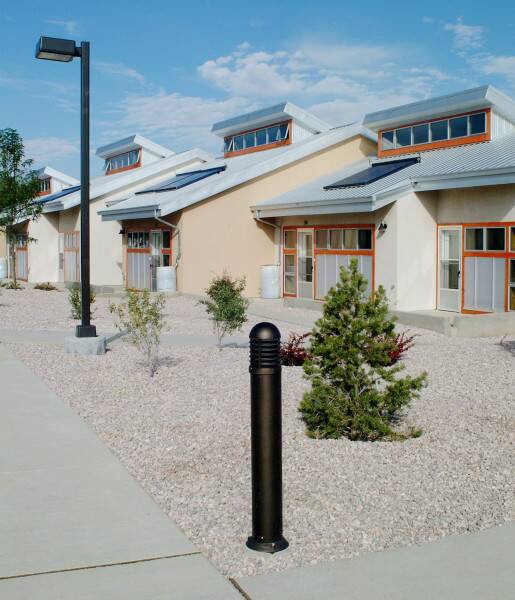HOME Investment Partnership Program
MFA's HOME rental programs are designed to provide gap financing for a variety of affordable and special needs housing projects throughout the state of New Mexico. As gap financing, HOME funds are typically the last dollars committed to a project and are used in combination with other housing resources such as MFA's Low Income Housing Tax Credit (LIHTC) and 542(c) loan programs.
The HOME rental programs described below provide assistance in the form of junior mortgages with below-market interest rates, extended maturity dates and other advantageous loan terms tailored to the particular needs of individual projects. Loan amounts and specific terms are determined on the basis of the projects' cash flow and affordability, among other considerations. HOME funds are structured as loans, which may be forgivable if extremely low income individuals or families are served. Use restrictions are established and monitored by MFA for all HOME rental projects, and various other federal requirements must be met in order to use HOME funding. These include, among others, completion of HUD's environmental review process and use of Davis Bacon wage rates in some cases. Preference will be given to projects having an MFA designated Community Housing Development Organization (CHDO) as developer, owner or sponsor. To obtain an award under the below CHDO limits the CHDO must agree to conform to HUD’s CHDO set-aside regulations, otherwise a CHDO would only qualify for a non-CHDO award.
To learn more about CHDOs go here.
HOME and 9 Percent Low income Housing Tax Credits (LIHTC)
Annual competitive round
MFA's HOME funds can be awarded as gap financing for projects that qualify for the LIHTC program. Based on availability of funds awards may not exceed the lowest of (a) $15,000 per unit for CHDOs/$7,500 for non-CHDOs, (b) $1,000,000 per project for CHDOs/$400,000 for non-CHDOs or (c) 80 percent of the project’s MFA approved total development cost. These projects must meet all of the requirements set forth in the Housing Tax Credit Program Qualified Allocation Plan and score high enough relative to other projects to receive a LIHTC allocation. HOME awards are made on the basis of highest level of affordability and tax credit scoring until all HOME dollars allocated for this purpose are awarded. Underwriting criteria used to determine principal and payment amounts are determined according to tax credit program standards. These allocations are available to nonprofit, for-profit, tribal and public agency developers who apply during the tax credit application period, and applications are typically due in mid-February of each year.
See application requirements here. If a project receives a preliminary LIHTC award notification, the applicant must submit the required fee(s) within five business days of receipt of said notification.
HOME Rental Incentives
This separate pool of HOME funds cannot be used for projects that receive a competitive 9 percent LIHTC allocation, although projects associated with private activity bond volume cap (a 4 percent LIHTC allocation) are eligible. Based on availability of HOME funds these awards may not exceed the lowest of (a) $15,000 per unit for CHDOs/$7,500 for non-CHDOs, (b) a maximum of $1,000,000 per project for CHDOs/$800,000 for non-CHDOs, or (c) 80 percent of the project’s MFA approved total development cost. The primary mortgage may be derived from tax-exempt bonds, 501(c)3 bonds, conventional loans or other sources. Award amounts and payment structures will be determined by the debt capacity of the individual project. Applications for these HOME funds will accepted and reviewed on a continuous basis until all HOME funds for this purpose have been awarded.
Applicants applying simultaneously for 4 percent LIHTC must use the application materials here.
Guaranties
Guaranty(ies) will be required from financially responsible entities or individuals acceptable to MFA if other than minimal funds are to be used during construction. If the proposed borrower has sufficient financial depth, a guaranty may not be required. See checklist for required financial statements.
Subordinations
HOME loans may be subordinated to first lien position loans but are still considered "hard debt" (not subject to available cash flow for repayment.) For certain HUD guaranteed loans such as 221(d)4, HUD requires that subordinate lenders sign its cash flow-only subordination agreement (form HUD-92420M). MFA will consider signing it on a case-by-case basis only if certain criteria are met. Please contact the program contact listed at the bottom of this page to discuss.











